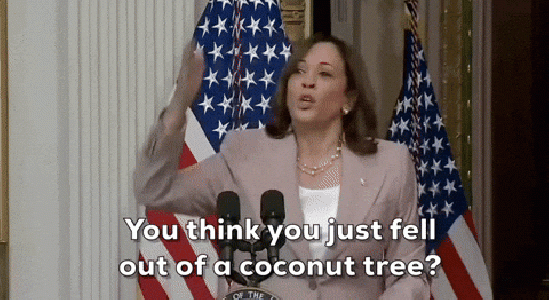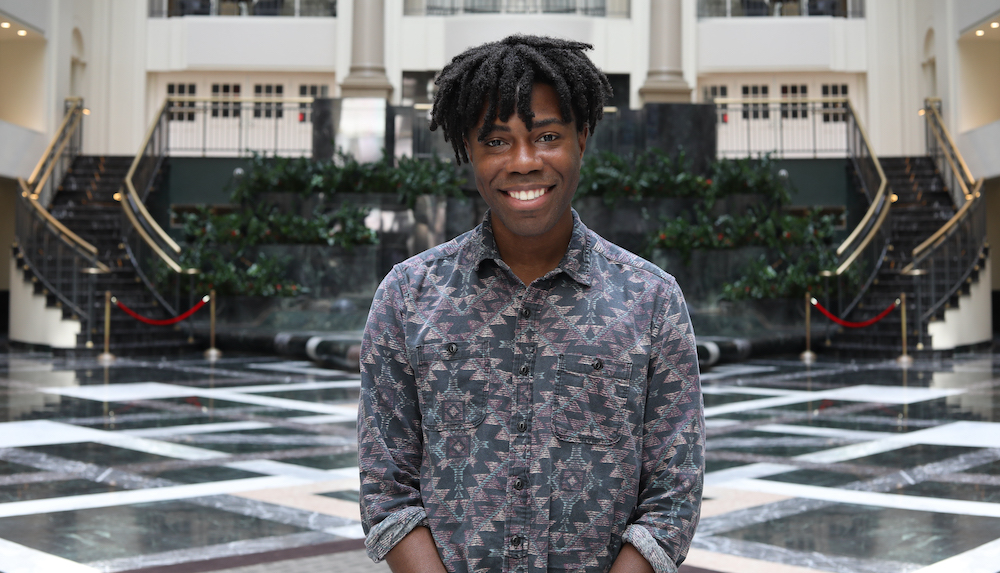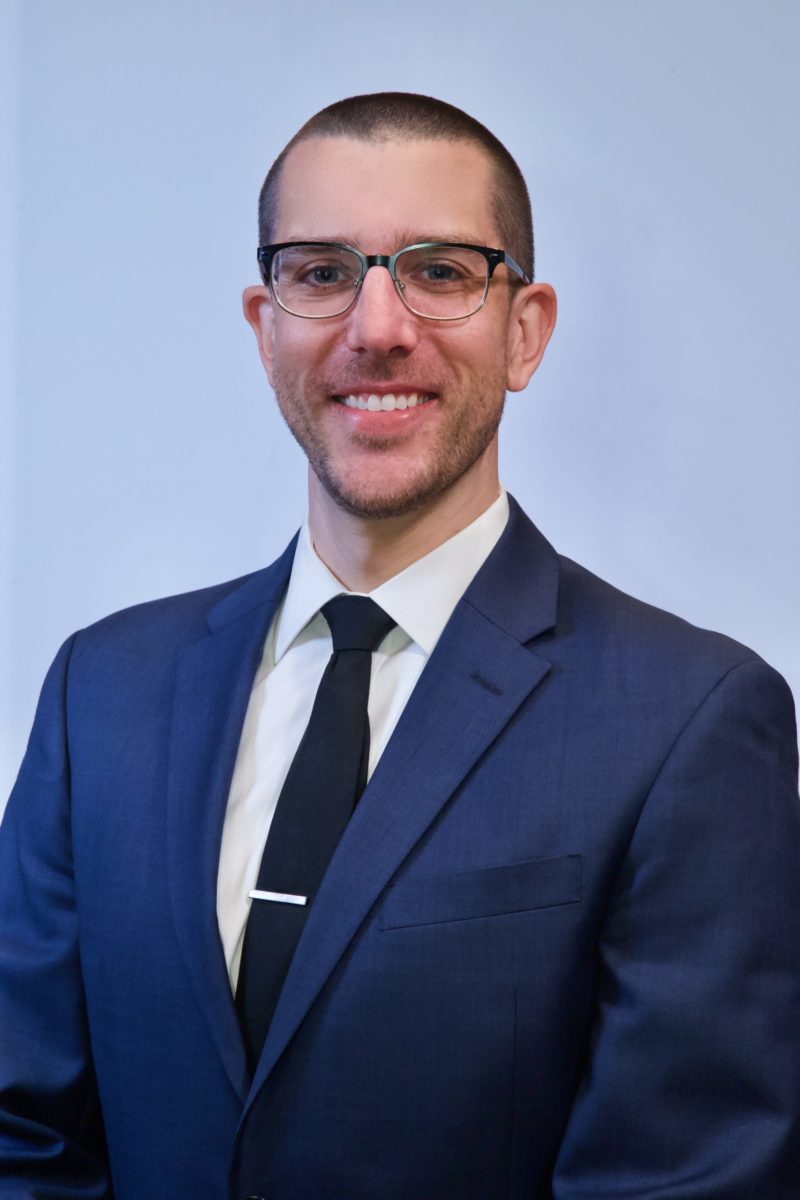The City of Baltimore has annouced its commitment to data governance by elevating the chief data officer to a citywide position, and the promotion of Justin Elszasz, formerly the deputy director of Mayor’s Office of Performance & Innovation, to the role.
After being formally announced for the position by Mayor Brandon Scott last week, Elszasz and I talked about open data, the open checkbook portal that is expected to launch in the next week, and how this citywide role is different from when it was under the Baltimore City Department of Information and Technology (BCIT). This conversation has been edited for length and clarity.
Technical.ly Baltimore: What are your plans for the first 100 days?
Justin Elszasz: First and most obviously is the open checkbook that the mayor committed to. We’ve been working pretty hard with our finance department and BCIT, to put together this open checkbook, which will basically be a portal that’ll allow residents to take a look at how the city spends its money with vendors, so I’m really excited to launch that.
Number two is launching a formal data governance committee. We started putting thought into what that’s going to look like, how it’s going to work and what are the things that we need to address. Obviously, things like internal data sharing, open data, data quality and standards are all kind of typical data governance concepts that that we really need to kind of more formally address and set some policies and procedures around.
Number three: We’re putting together a couple of things to drive data-driven culture forward in city government.
One is starting up a formal workforce training program for data, what I call a data academy.
San Francisco does this really well. They have kind of a catalog of modules or training classes that any city employees can take for free to learn how to use data. And we want to do something similar here. I think that’s going to start a little bit smaller. But we want to give our city employees a little bit more formal education or training on using data to really try and grow the organization.
The minority and women owned business directory is in a search portal on the law department website. We’re going to go ahead and make that an open data set on Open Baltimore [which is the City’s portal for freely available civic data]. It’ll make it a little bit easier for people to use that data.
The last thing we’re doing, hopefully launching this week in collaboration with the Centers for Civic Impact at Johns Hopkins, is a survey of data practices [in Baltimore city government]. I informally know how city agencies are using data, but we want to conduct a more formal survey to collect better data and information on some of their internal practices.
I think that was a list of about six things that I’m really excited to tackle here within the first 100 days.

Justin Elszasz at Baltimore Data Day 2015. (Technical.ly file photo)
TB: Open Baltimore recently relaunched. How do you see the open data platform’s role in the city expanding as you continue to develop it?
JE: I’m really excited about the switch to a new platform. But I think there’s a lot more that we can be doing with it, if I’m honest. I feel like my interest in city data started out when I was a resident and was pulling open data myself to analyze and play with it. I come to it from the perspective of a resident or a user and how a data savvy resident would want to see that data and use it.
I want to expand the offerings and I want to think about, again, setting up more formal data governance within city government. At the very least, encouraging agencies to start identifying more datasets, not just for the sake of putting raw data out there, but it’s an opportunity to engage residents to solve problems.
It’s really an opportunity to just leverage more brainpower here in the city, whereas open data started off as primarily around transparency and trying to provide a little bit more information on how city government works. I want to encourage agencies to start seeing it as an opportunity to engage with residents and actually solve some of their problems, because, like I said, we could use all the brainpower we can get.
I want to start reframing open data in that way for our agencies, that it’s an opportunity and not just a responsibility or a burden.
I want to encourage agencies to start seeing (open data) as an opportunity to engage with residents and actually solve some of their problems.
How is this city wide position different from when chief data officer was under BCIT?
JE: First of all, I think [the citywide appointment] is a signal to city agencies and to the public that data really is at the core of how we want to operate and how the mayor and our city administrator want our government to operate is by putting data at the center of it.
I think city government can use a data evangelist. I see that as part of my role, trying to bridge the gap between residents and agencies and show everyone the great work that the city government is already doing around data.
TB: This may seem mundane, but what does the chief information officer do in city government? What’s your job description?
JE: The tagline line I’m going with is, I want to be the city’s chief data evangelist.
There’s three buckets that my work will fall into.
The first is, as I mentioned, data governance. We as an organization need better and more data quality standards, sharing practices and processes and policies, really so that we can ensure for residents that we are collecting, storing and using data and ethically and equitable and ethically responsible manner and doing so, that kind of mitigates the harm that data can do in terms of equity.
Number two is around open data, that’s actually if you look at the city code, that’s the one mandate that the role of the chief data officer has : the responsibility for the open data program. And I’m lucky enough to be working under the mayor, who, as a former councilperson, was the one that introduced the bill that created the program.
The third is around workforce development and training around data. So all three of those things in my mind are all about kind of growing the data driven culture in Baltimore.
I think focusing on those three areas are going to deliver the most value to city residents.
Donte Kirby is a 2020-2022 corps member for Report for America, an initiative of The Groundtruth Project that pairs young journalists with local newsrooms. This position is supported by the Robert W. Deutsch Foundation.Before you go...
Please consider supporting Technical.ly to keep our independent journalism strong. Unlike most business-focused media outlets, we don’t have a paywall. Instead, we count on your personal and organizational support.
Join our growing Slack community
Join 5,000 tech professionals and entrepreneurs in our community Slack today!

This Week in Jobs: Fall from the coconut tree and check out these 22 career opportunities

Gen Z pivots to gig jobs instead of full-time work: Who is that good for?

Baltimore Money Moves: Under Armour to pay out $434M in class-action settlement


